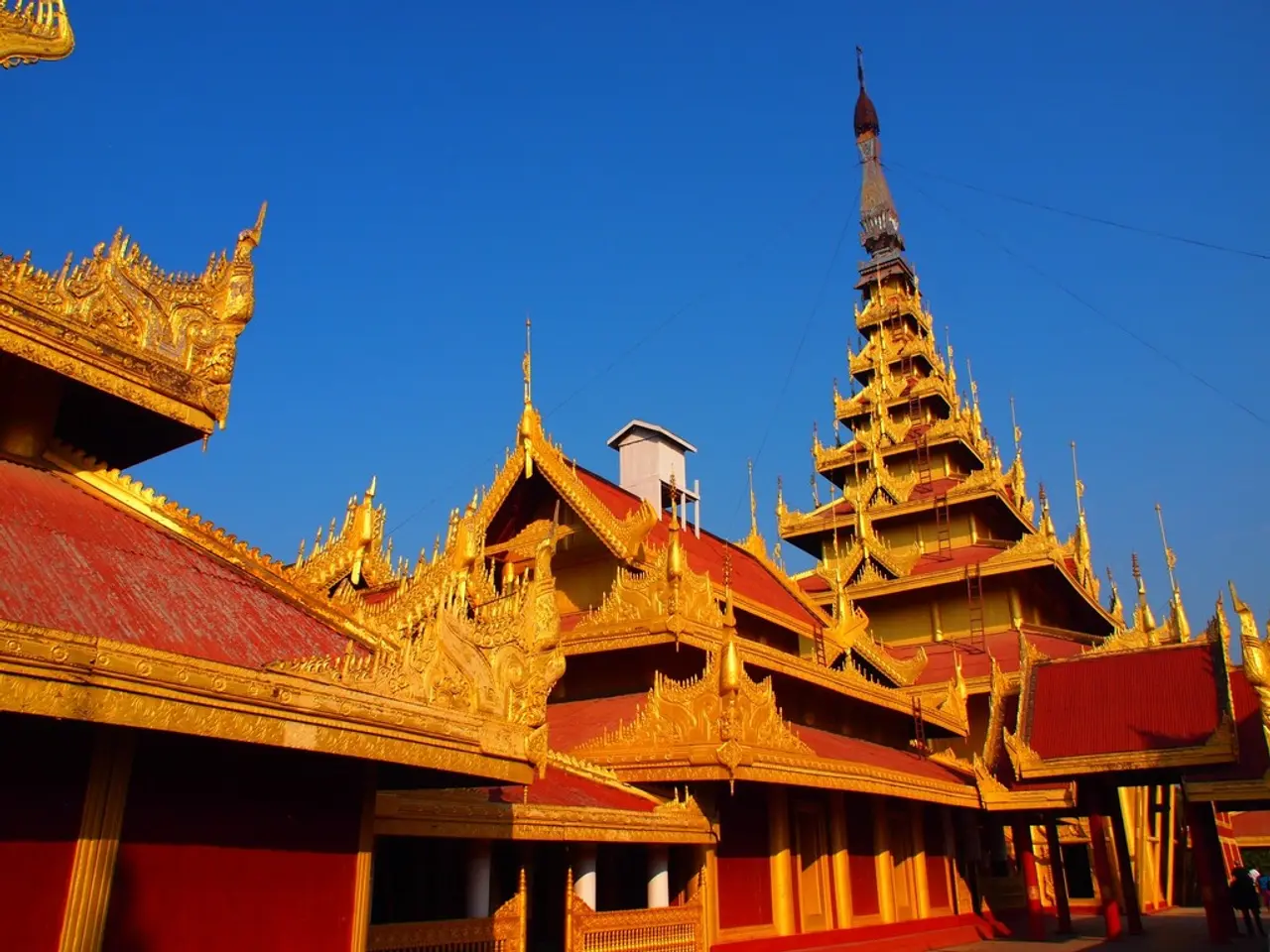Authorties in Myanmar maintain support from foreign allies
In the troubled nation of Myanmar, the civil war continues to rage, causing a significant humanitarian crisis and threatening both regional stability and investment.
The Arakan Army (AA), the strongest ethnic armed organization in Myanmar, has announced plans to seize the rest of Rakhine state, including the regional capital Sittwe. The AA currently controls 14 of the 17 townships in Rakhine state, and almost entirely the northwestern state.
Meanwhile, in the north, fighters of the Kachin Independence Army (KIA) have made new gains in their ongoing attempt to capture the strategically important city of Bhamo. The KIA, like the AA, is one of the many ethnic rebel organizations in Myanmar, each vying for control and autonomy.
The ongoing civil war has resulted in a staggering 3.6 million internal refugees nationwide. Voting is practically impossible in many areas due to them being held by regime opponents or being hotly contested.
The military junta, led by Min Aung Hlaing, holds dual roles as army chief and acting president of Myanmar. In a recent meeting with Indian Prime Minister Narendra Modi during the Shanghai Cooperation Organization summit in Tianjin, China, discussions focused on enhanced cooperation in trade, energy, mining (especially rare earths), and security. The Indian government maintains a cautious and complex stance towards Myanmar's military junta, balancing regional security interests and concerns over human rights without openly endorsing the junta.
The junta's Ministry of Home Affairs has declared the Karen National Union (KNU), Myanmar's oldest ethnic rebel organization, a "terrorist organization." The KNU, however, has recently gained more territory along the Thai border.
The military junta is planning to hold an election farce in late December, with all 61 registered parties, including nine contesting nationally, being deemed pro-regime. The victory for the Union Solidarity and Development Party (USDP), led by former high-ranking officers in civilian attire, is considered assured.
The ongoing civil war threatens existing and planned Chinese investments in the country. Chinese President Xi Jinping and Min Aung Hlaing reportedly discussed economic issues surrounding the China-Myanmar Economic Corridor (CMEC) during their meeting.
The meeting between Min Aung Hlaing and Modi resulted in images of their handshake circulating globally and Modi's post stating that India views Myanmar as an important partner. However, the lack of a public record of a recent meeting between India's leadership and Min Aung Hlaing indicates a more nuanced relationship.
The situation in Myanmar is complex and multifaceted, with various ethnic groups vying for control, a military junta holding power, and a humanitarian crisis unfolding. As the world watches, the future of Myanmar remains uncertain.
Read also:
- Worsened post-flood disease outbreak in the Philippines due to inadequate infrastructure planning, according to industry experts
- Preparations underway amongst European countries for a prospective age of international chaos
- Trump advocates for the withdrawal of two candidates to create a one-on-one mayoral race between him and Mamdani in New York City
- "Father, battling illness, laments the loss of compassion as he learns that support for his autistic son in school will no longer be provided"








